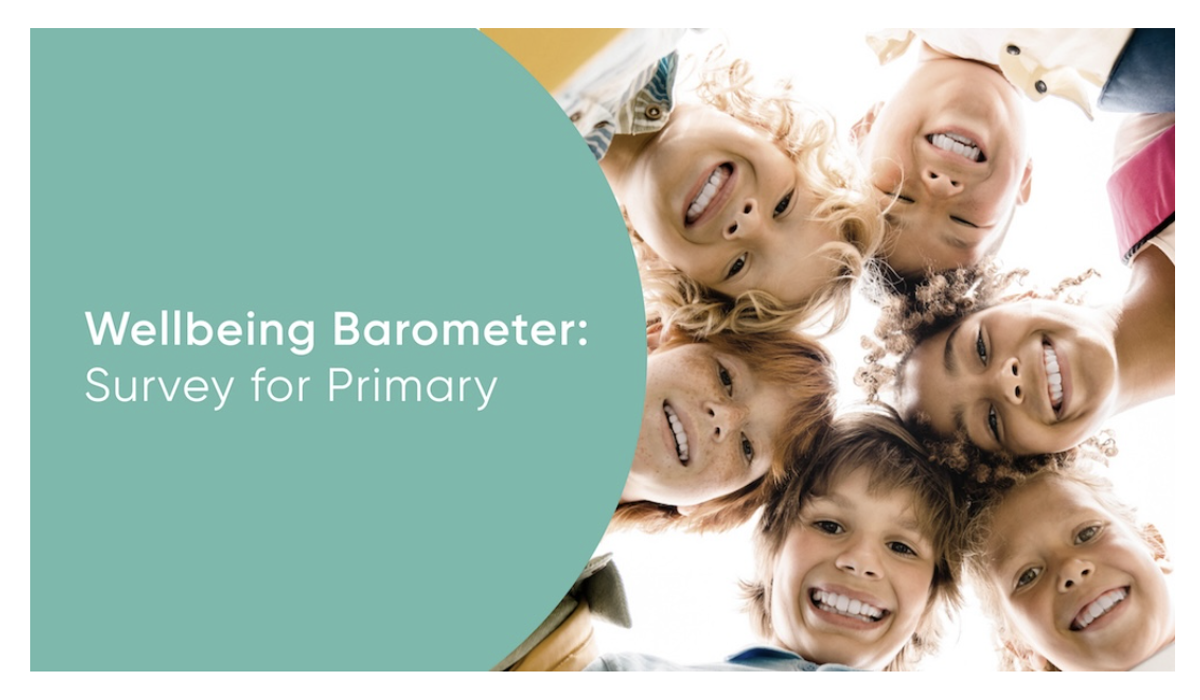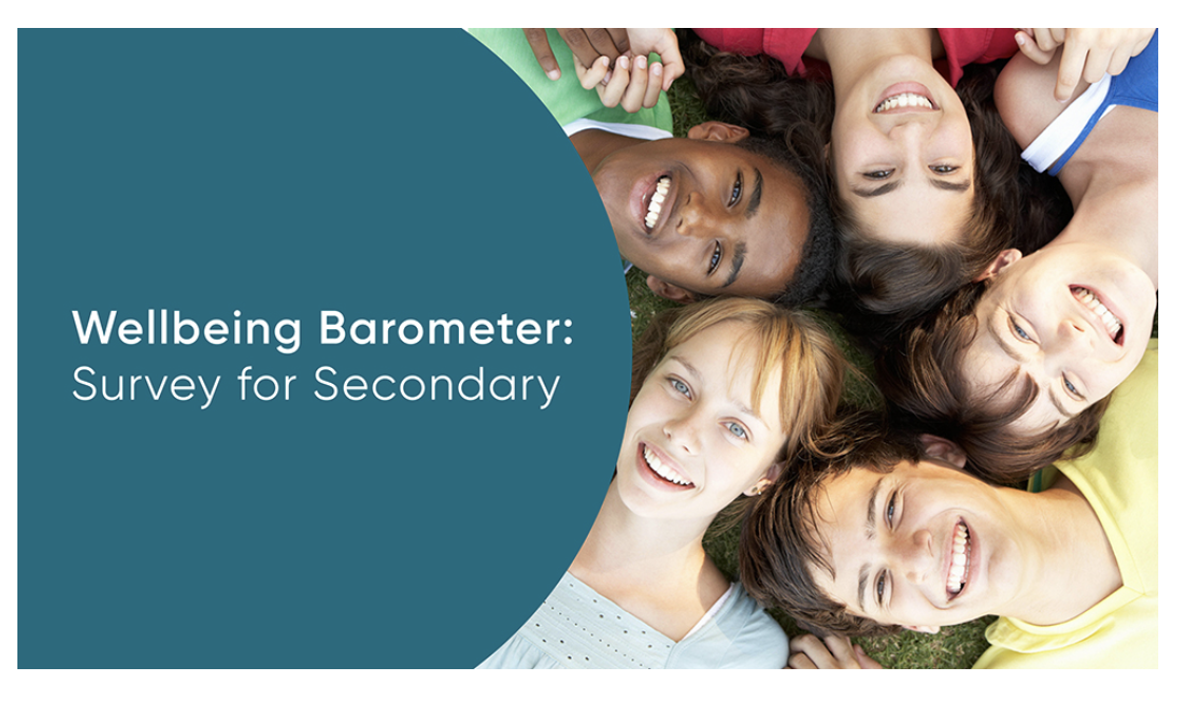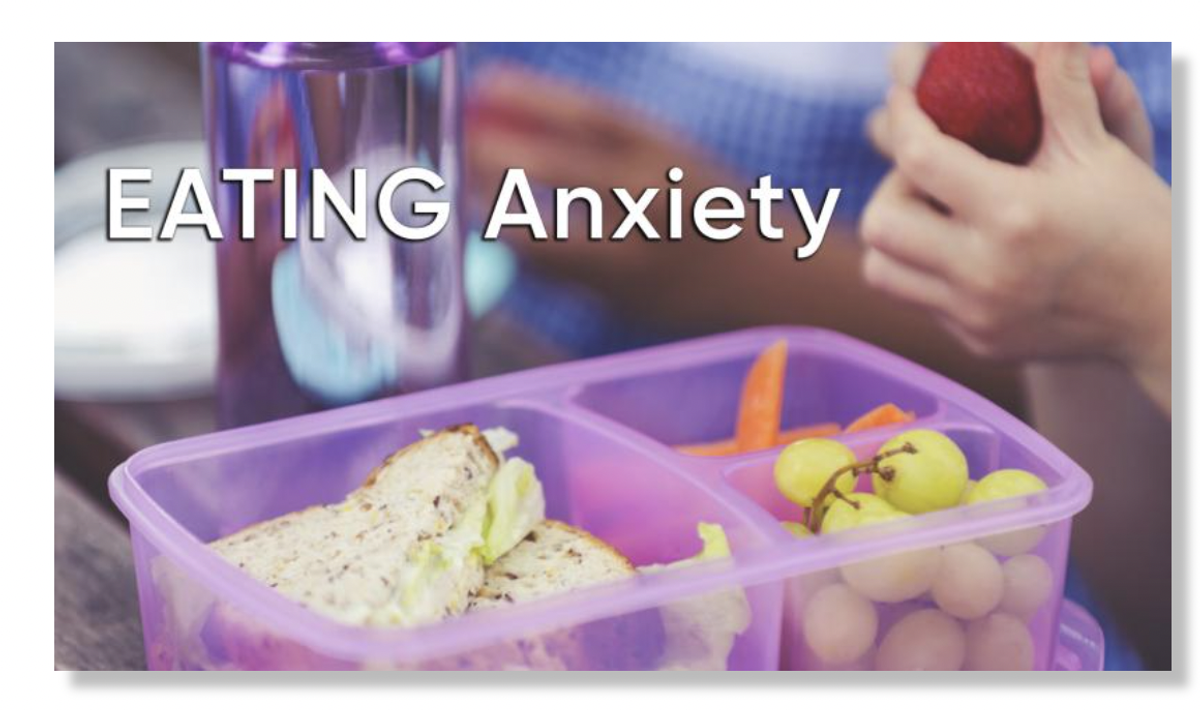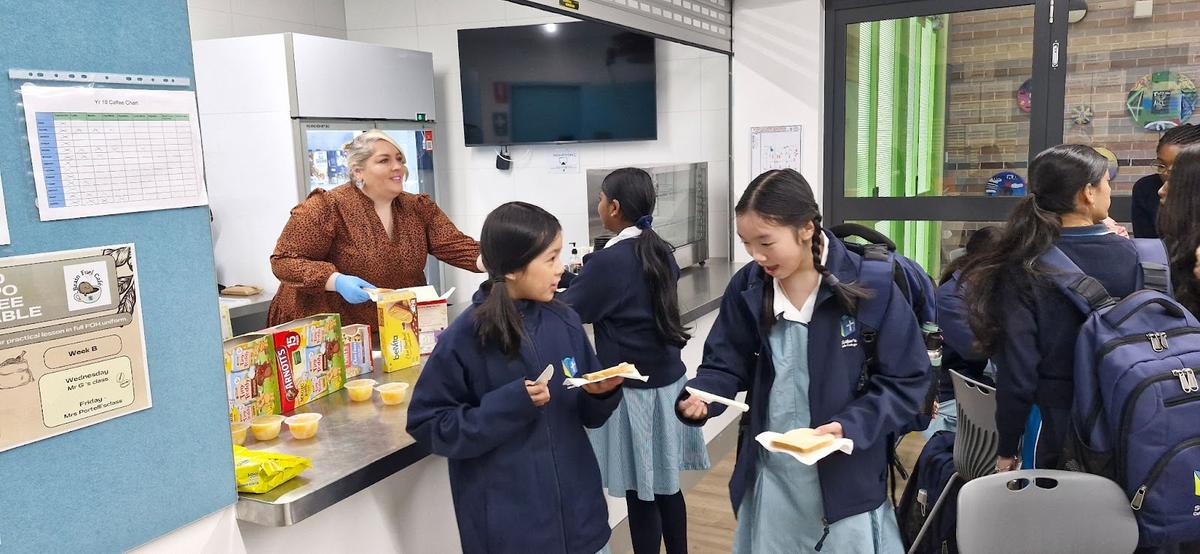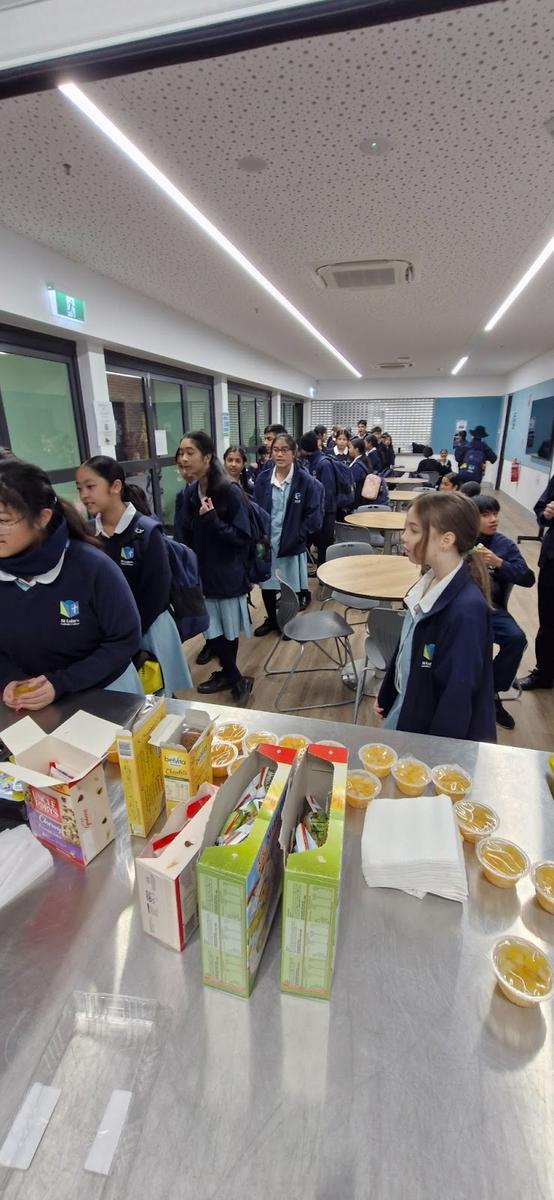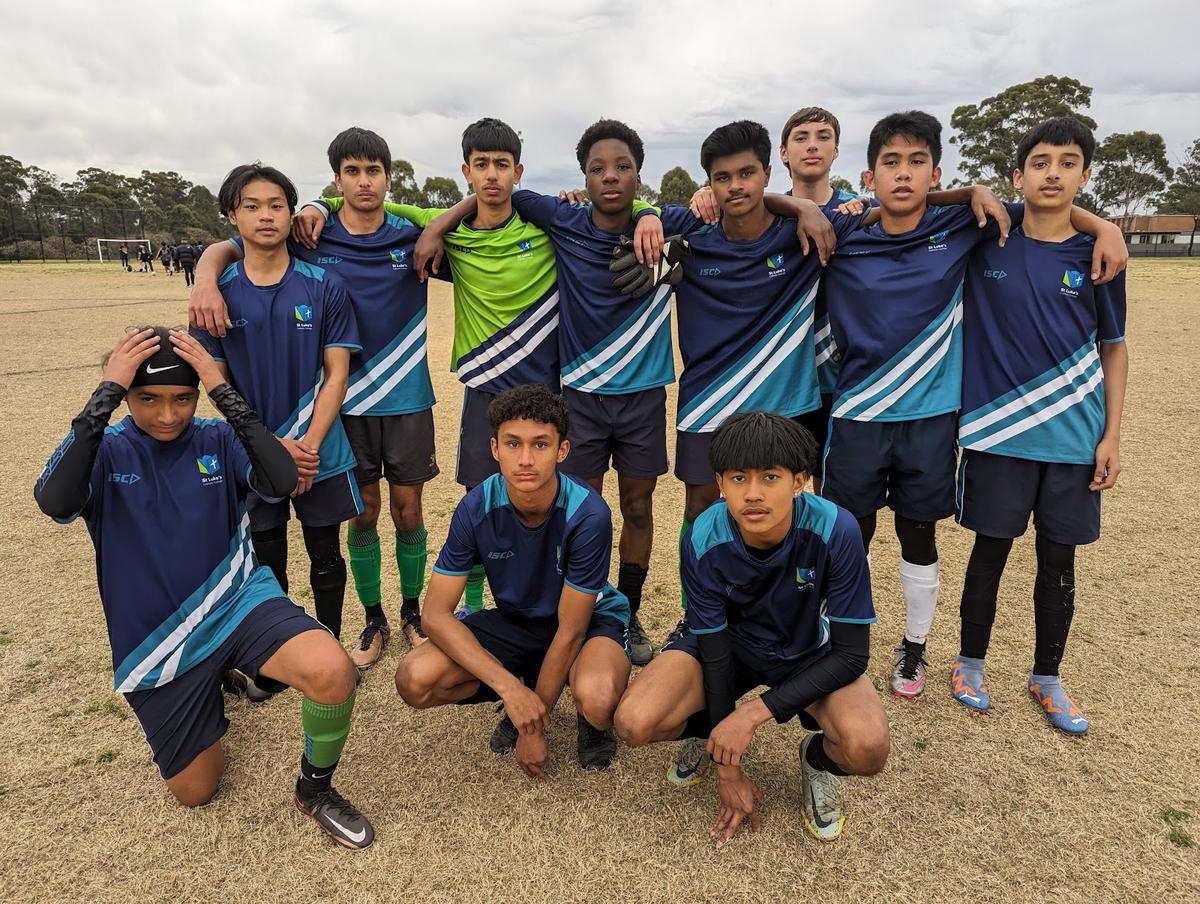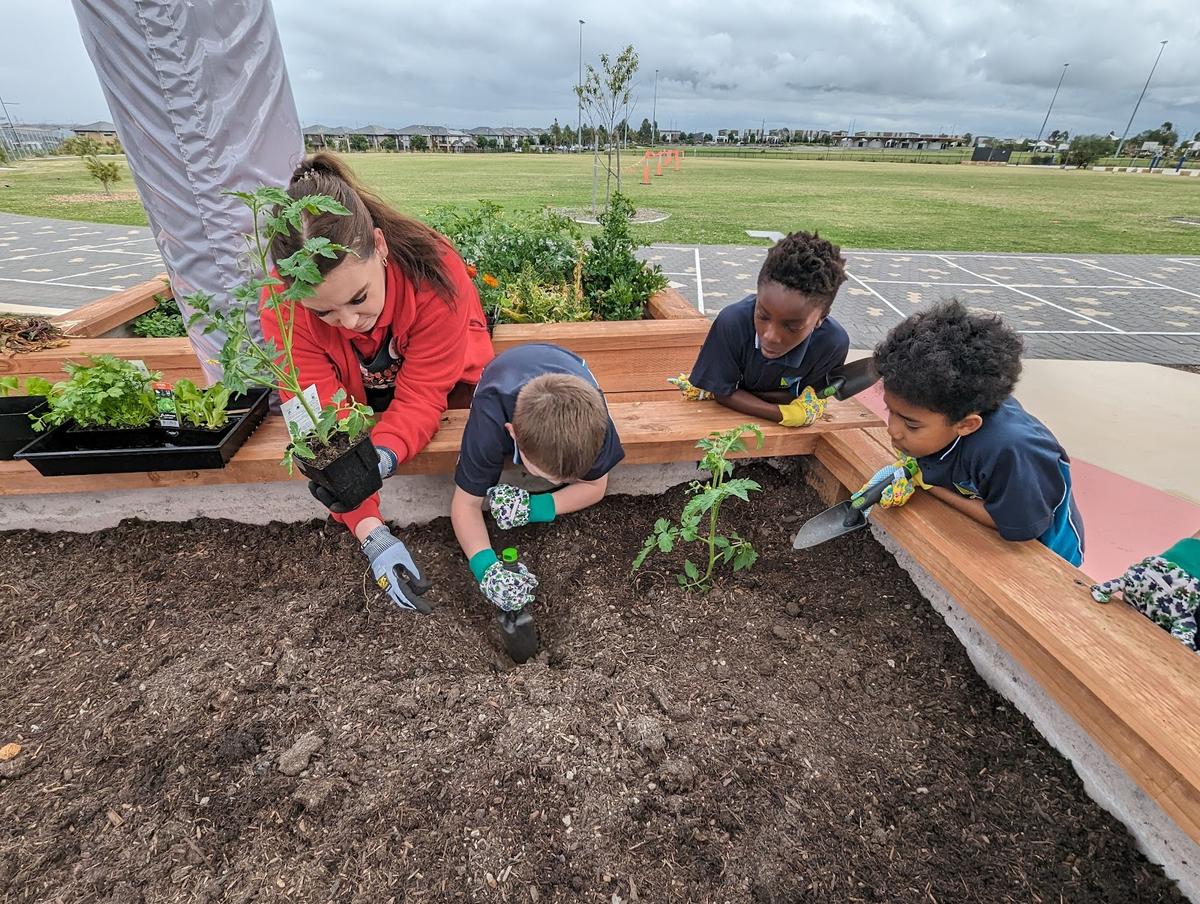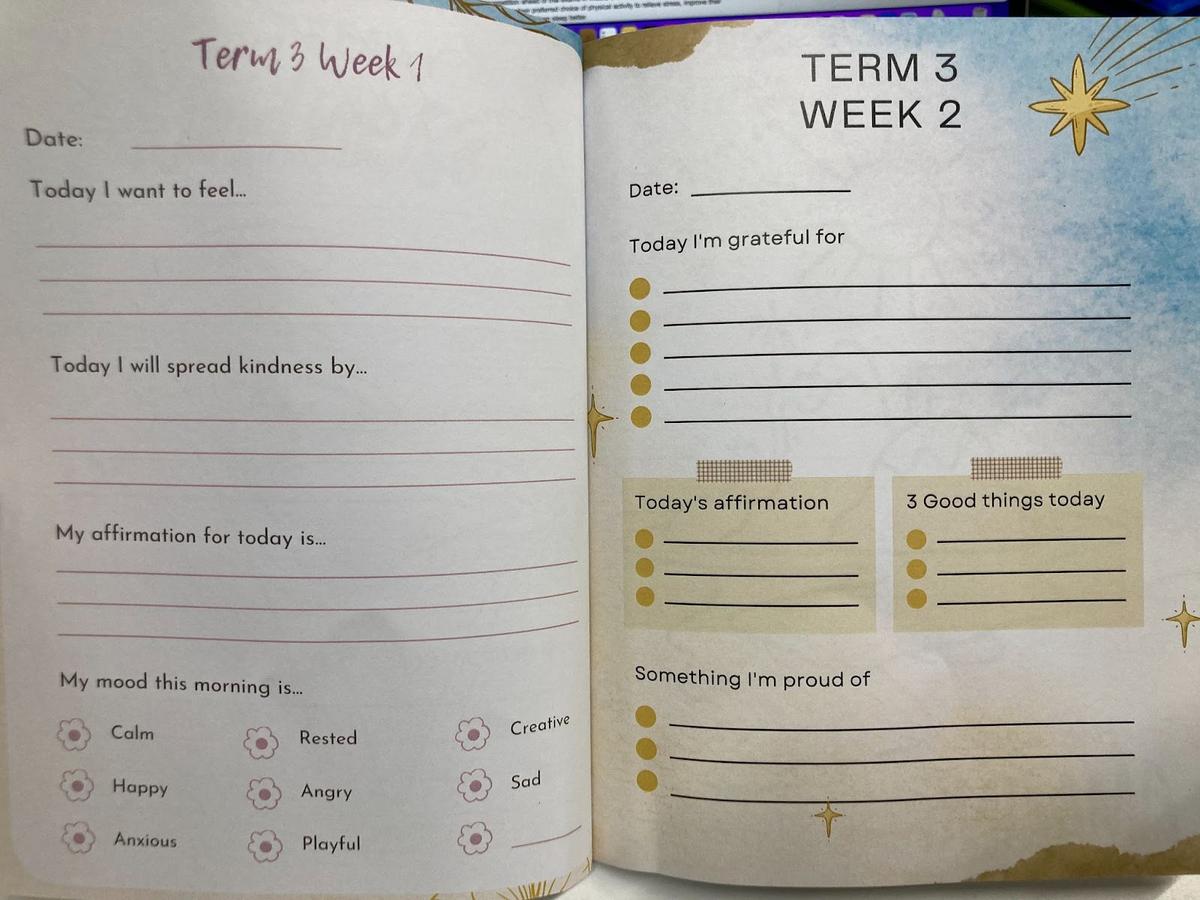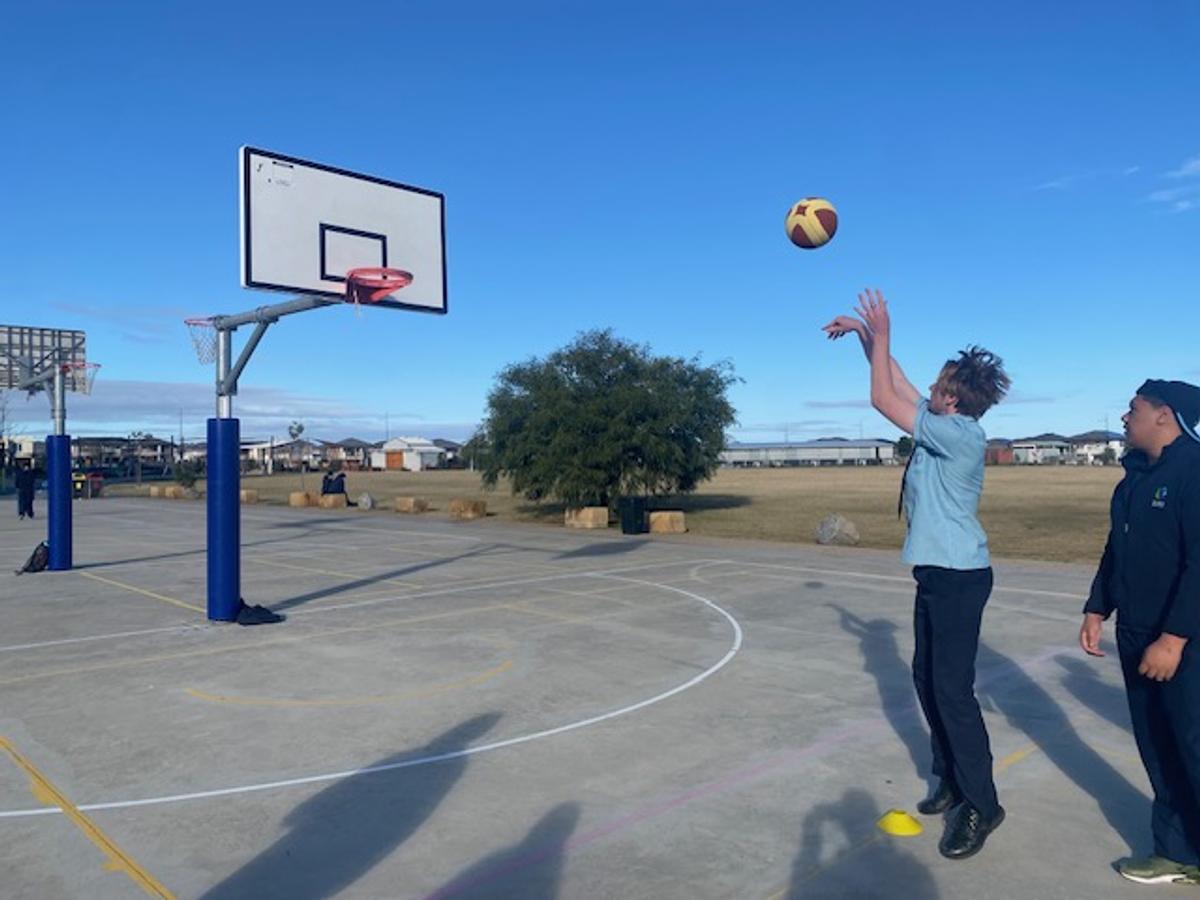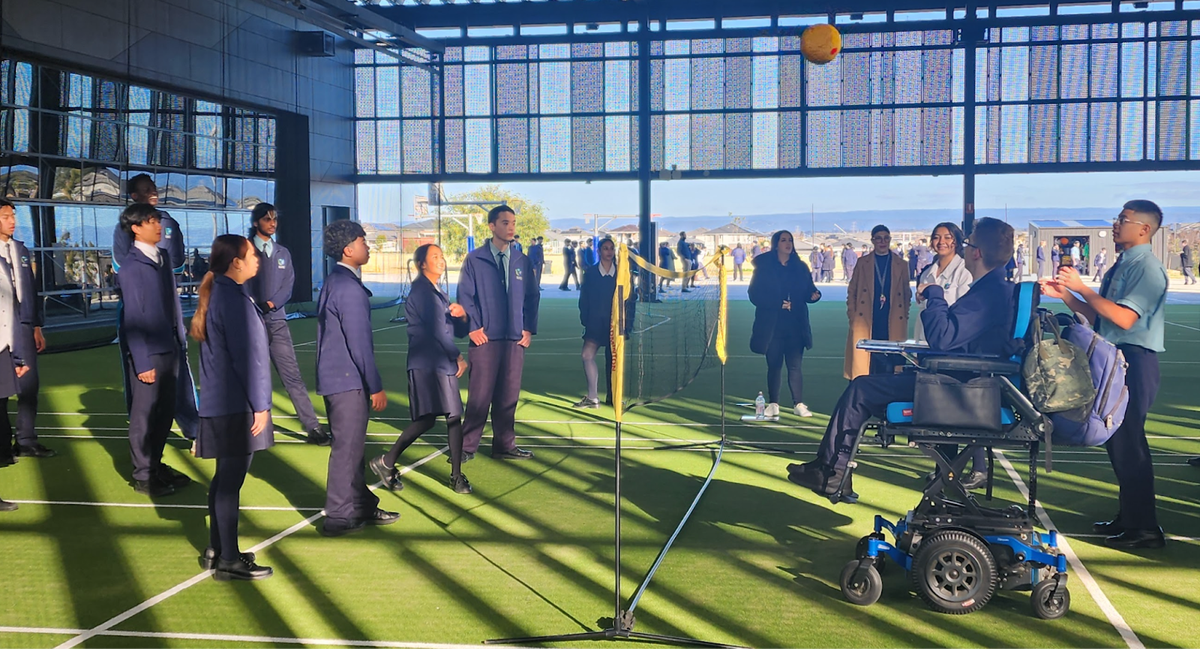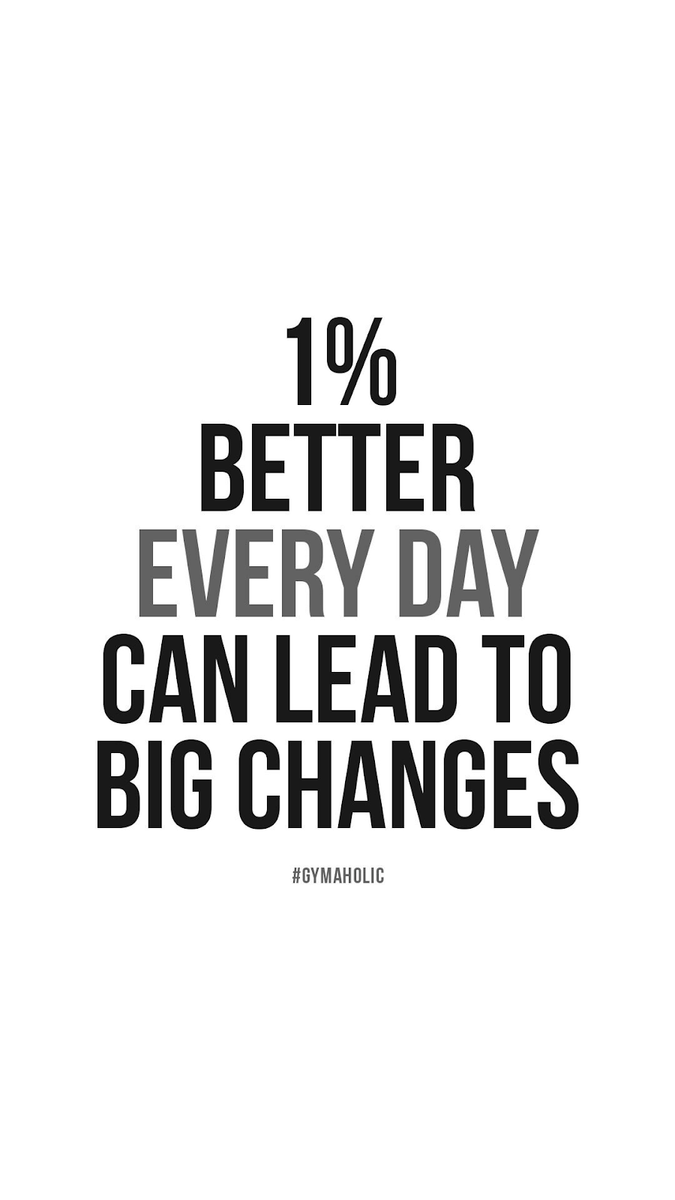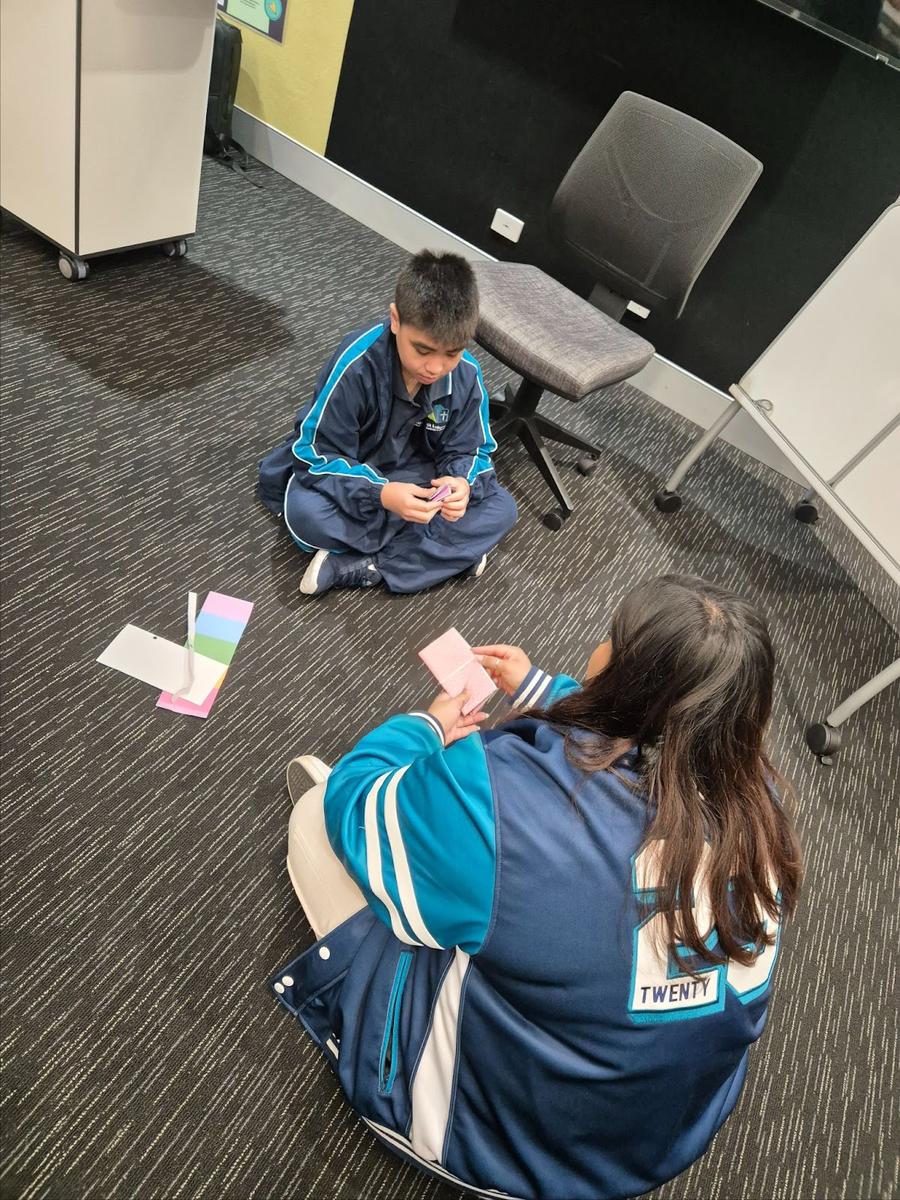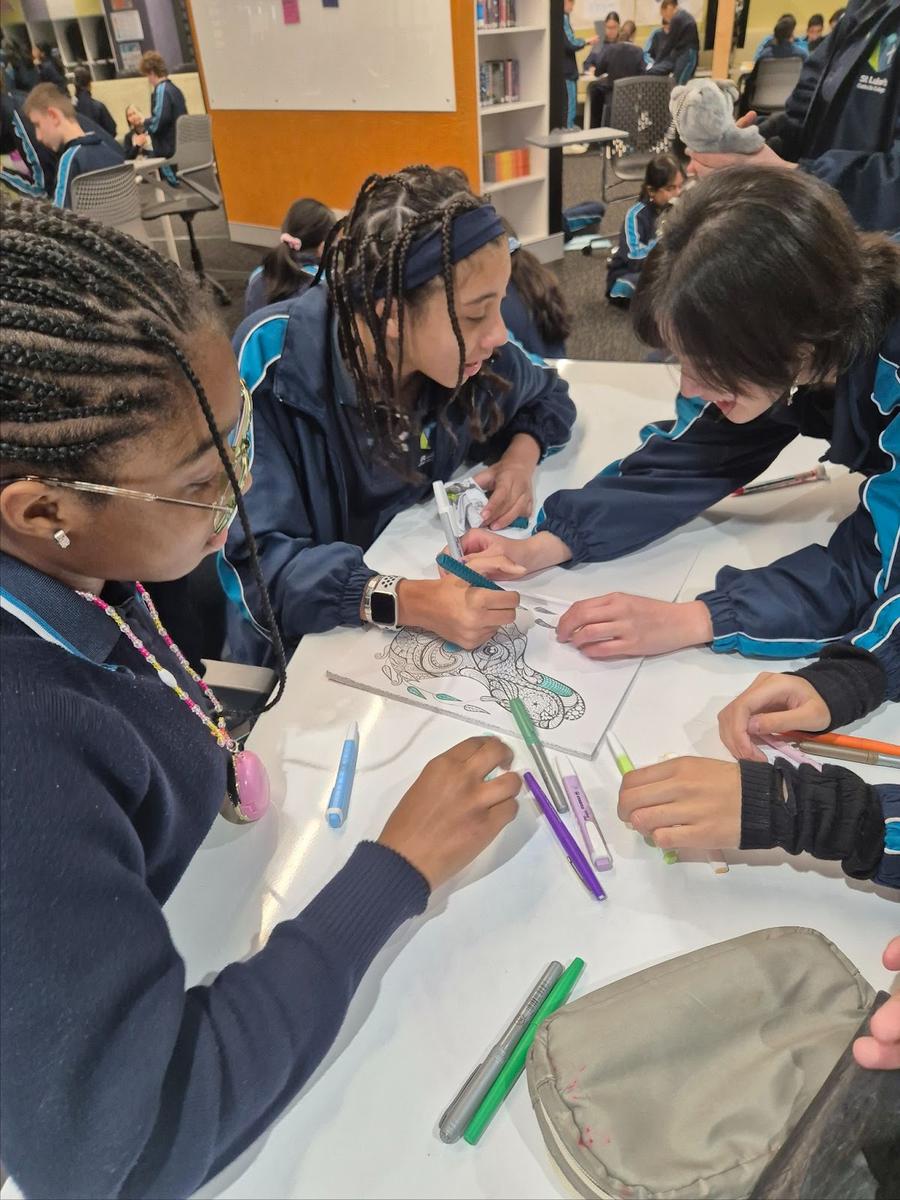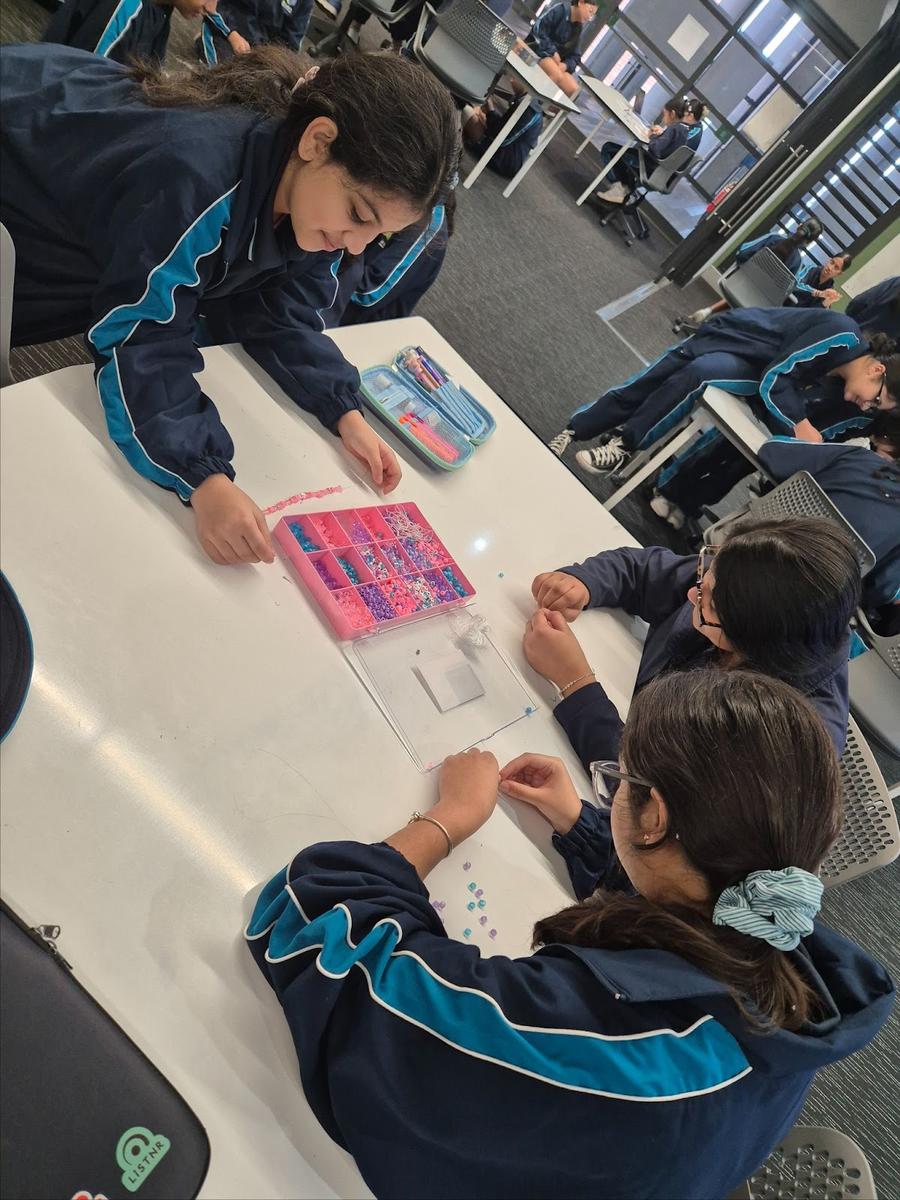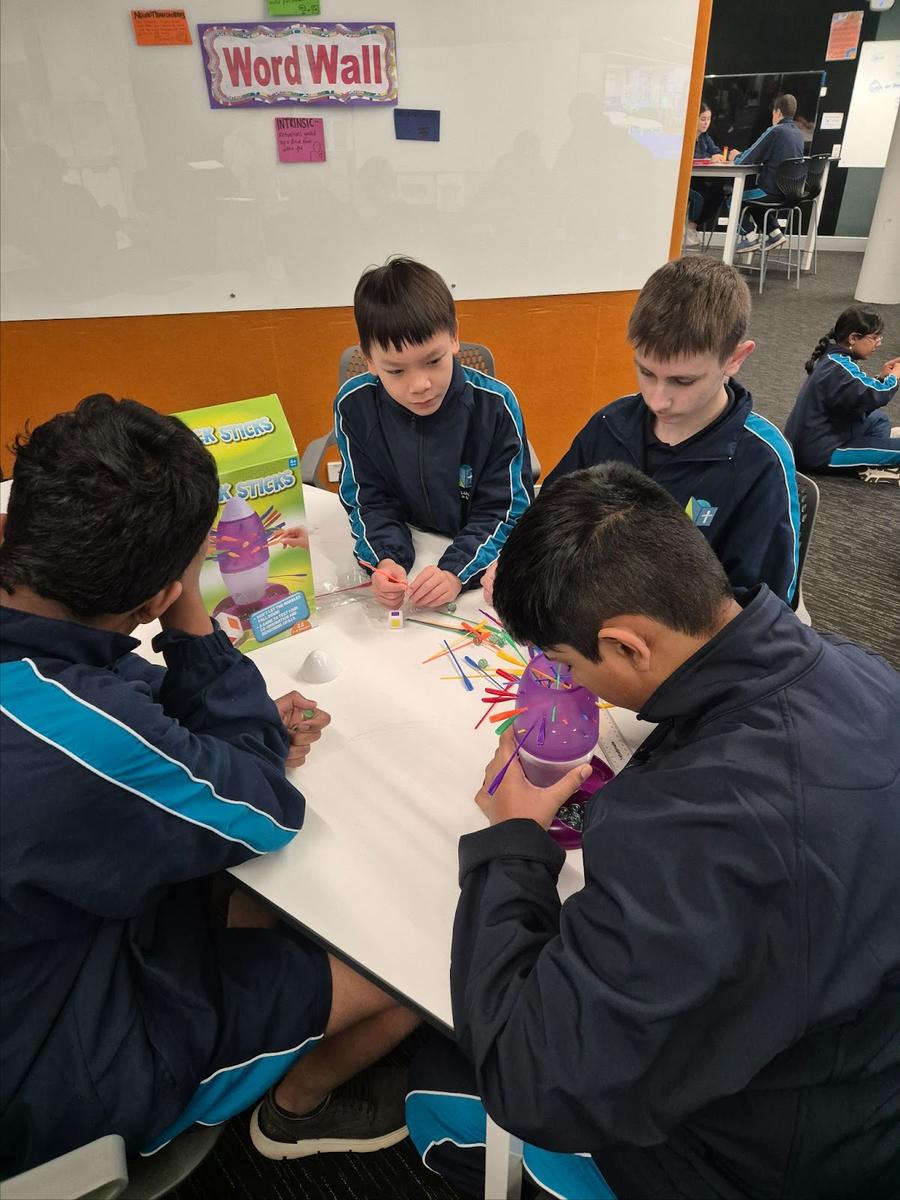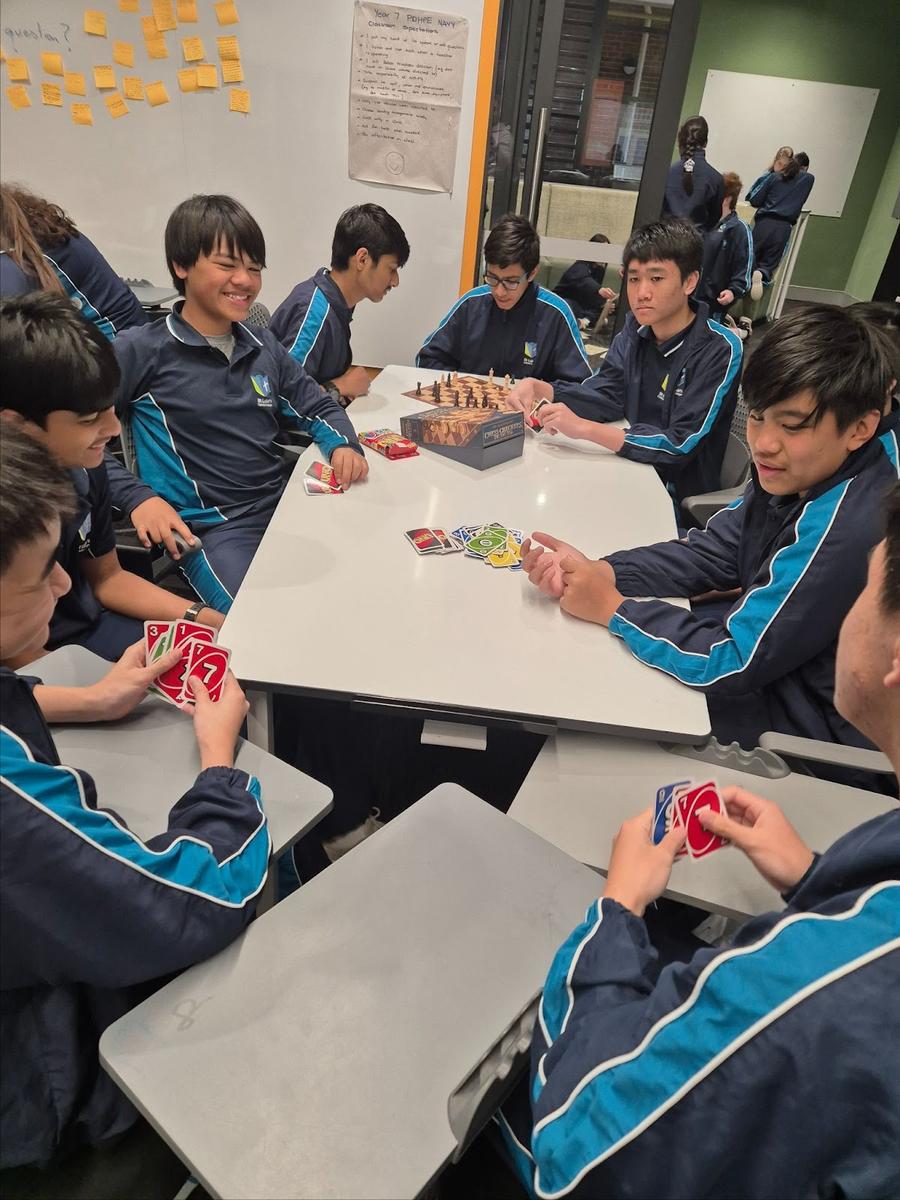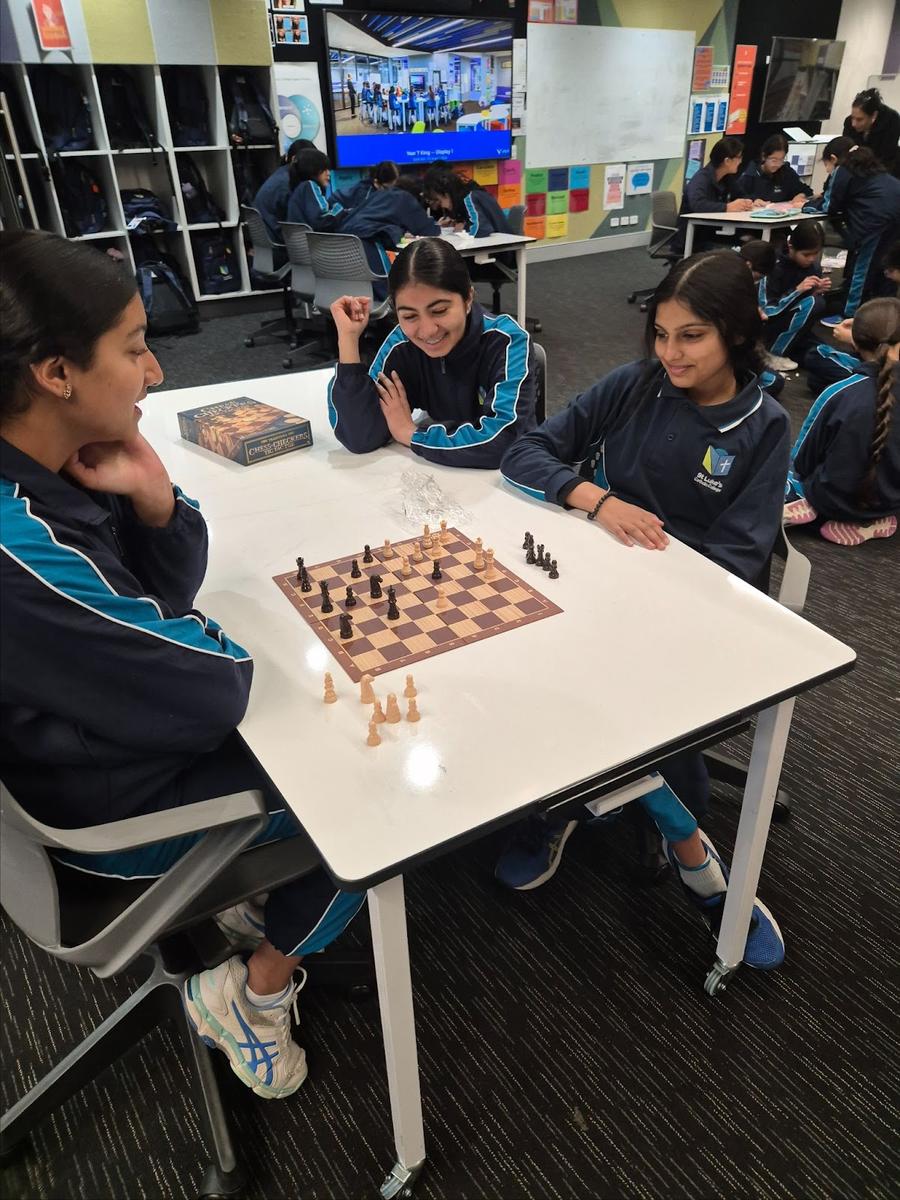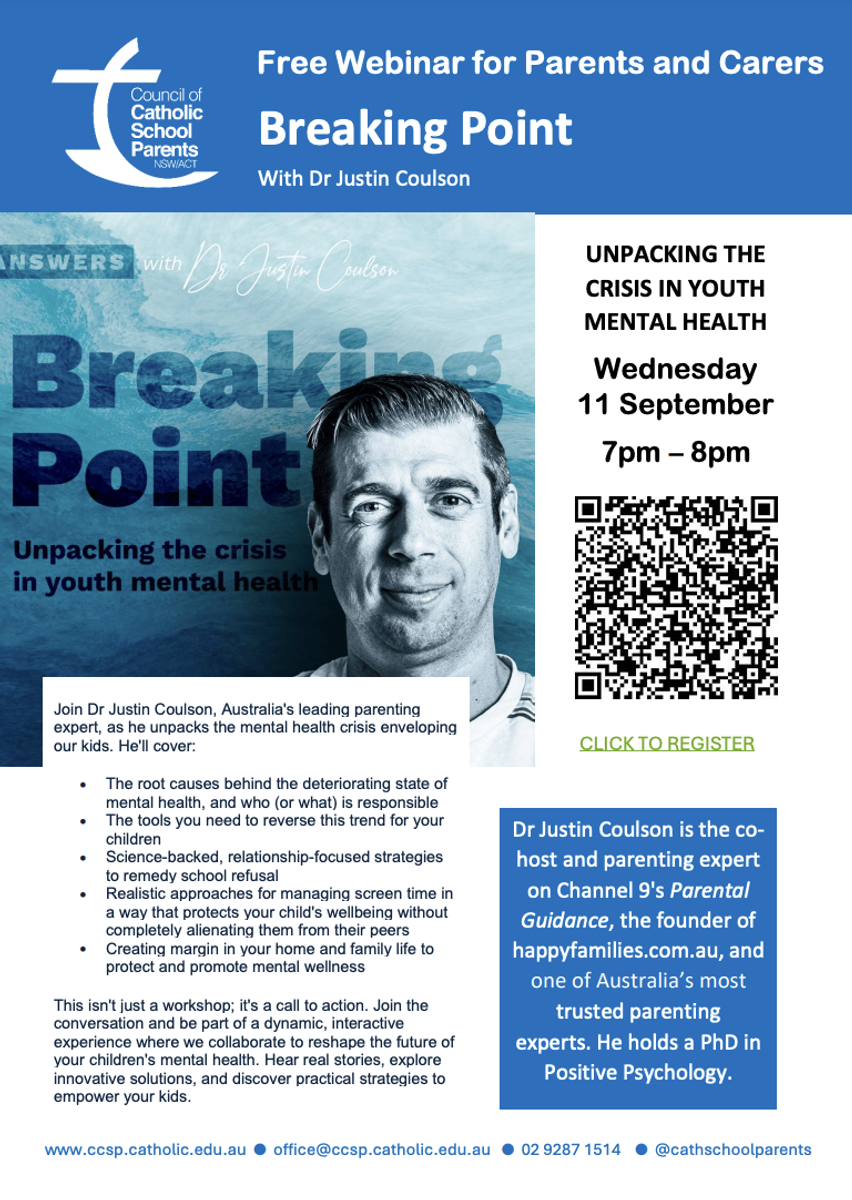Wellbeing
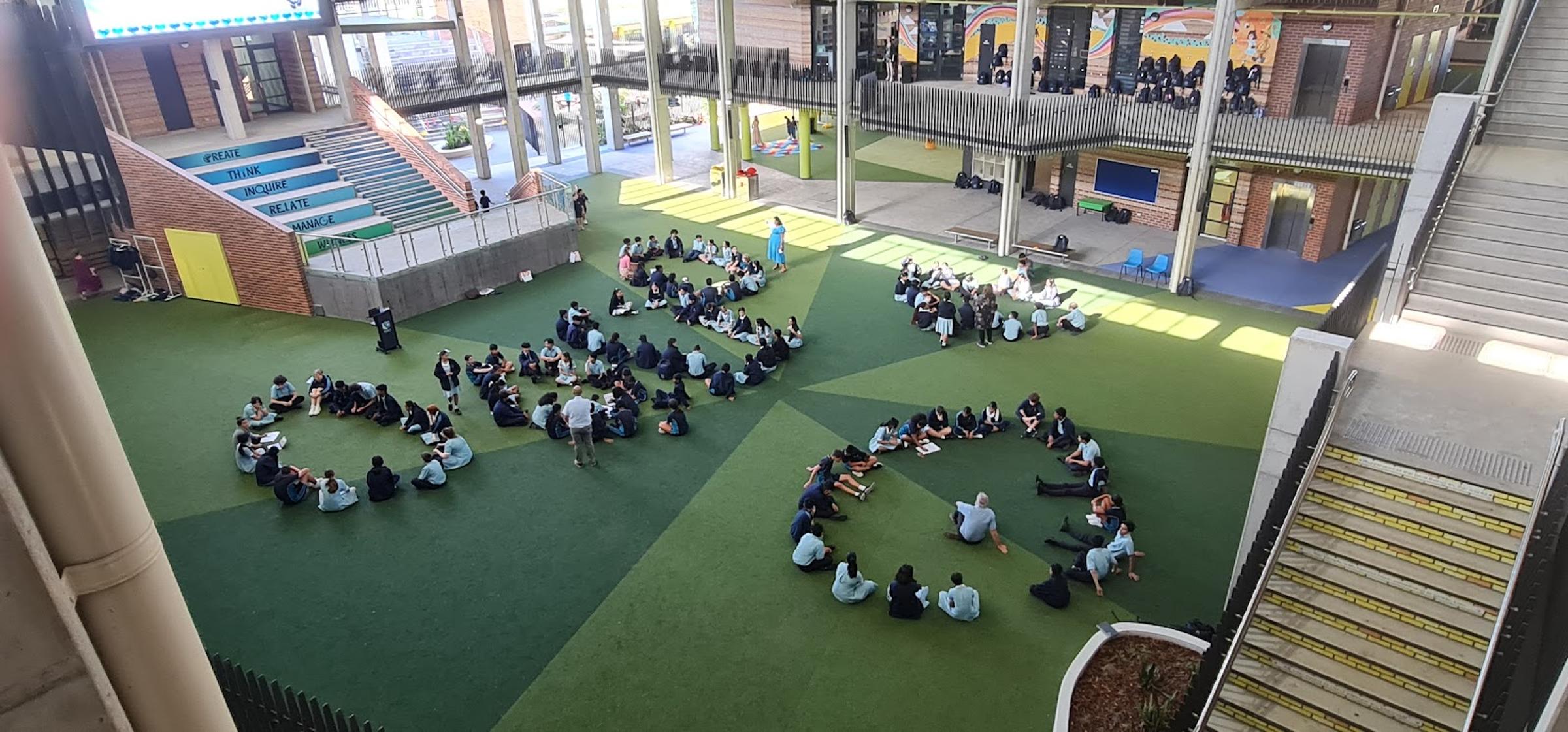
Wellbeing at St Luke’s College
How can parents access SchoolTV?
Below are the 3 steps to access. You will need to log into Canvas, then select the wellbeing course. At the top of the course, there is an icon and blurb. In addition, here is the link that anyone can use to quickly get into school TV https://stlukesmarsdenpark.catholic.schooltv.me/
The Wellbeing Barometer survey has become a crucial tool for schools, offering insights into youth mental health and wellbeing. By understanding community concerns and the nature of these issues, schools are better equipped to support families and foster meaningful conversations, thereby building stronger relationships.
This survey is part of an ongoing, longitudinal study, with the results being instrumental in tailoring support for students and their families. Participation is strongly encouraged, as it provides a comprehensive view of students' experiences, challenges, and achievements over the past year.
Participating in this year's survey, will assist St Luke’s in identifying areas of strength and concern, as well as pinpointing opportunities for early intervention. The survey aims to capture a comprehensive picture of young people's lives, allowing for a tailored approach to enhance mental and emotional wellbeing.
We encouraged you to complete either one or both of the surveys below, depending on the age of your children and the schoo (Primary or Secondary)l they attend. Please complete one survey for each child that you have in either primary or secondary school. There is no limit to how many times you can complete the survey. This will allow you to provide more accurate responses based on the individual children.
Remember, all responses remain anonymous and should reflect observations made over the last 12 months. Survey results are only reported on an aggregated basis.
https://stlukesmarsdenpark.catholic.schooltv.me/wellbeing-barometer-2024-primary
https://stlukesmarsdenpark.catholic.schooltv.me/wellbeing-barometer-2024-secondary
SPECIAL REPORT: Eating Anxiety
SPECIAL REPORT: Eating Anxiety
The complexity of eating anxiety stems from a combination of social, psychological, and environmental factors. Young people may develop this anxiety due to social pressures related to eating in front of others, fears about body image, or due to more ingrained issues such as eating disorders. Additionally, cultural norms or dietary restrictions can also play significant roles, as can direct experiences like bullying or teasing related to food choices or eating habits.
Whilst not a formally recognised condition, eating anxiety is a genuine and often overwhelming experience that can significantly hinder a young person's ability to participate in everyday activities comfortably. This condition can lead to serious nutritional deficiencies and social withdrawal, impacting overall health and academic performance.
Recognising and addressing eating anxiety is crucial for parents, carer, and educators. Through education, policy changes, and community support, we can help young people manage their anxieties and improve their relationship with food, thereby enhancing their overall well-being and social interactions.
This Special Report will help you understand how best to support a child experiencing anxiety around eating.
Here is the link to your Special Report https://stlukesmarsdenpark.catholic.schooltv.me/wellbeing_news/special-report-eating-anxiety-au
How is your School Assisting Students?
Week 2 saw the launch of the SOL Breakfast Club with great success. The breakfast club is run on Thursday mornings in the cafe for SOL students as a chance to bond, build connections and settle into the school day and to counteract the anxiety of eating food before coming to school.
Understanding the Teenage Male Brain: A Guide for Parents and Educators
Educators, parents, and carers often find themselves puzzled by teenage boys impulsive and seemingly reckless behaviour. We’re left scratching our heads while they’re pushing boundaries and taking risks. But when we dive deep inside the male teenage brain, we can see and understand the unique neurological development at play.
Renowned parenting expert and Top Blokes ambassador, Dr. Justin Coulson, sheds light on the evolving male brain, providing some fundamental knowledge and advice that can help us play a role in nurturing young males towards healthier and safer lives.
The neurological development discrepancy
The difference between male and female teenage brains is frequently commented on; they develop at different rates and at different times. In fact, this happens from day one of birth and continues well into the teenage years. “By the time kids are entering about grade seven, we think that there’s about a twelve to 18-month discrepancy in terms of neurological maturity between a male brain and a female brain. The girls are that much more in front,” says Dr. Coulson. This gap means that boys may exhibit behaviours that seem immature compared to their female peers, even though their intellectual capacities are the same.
What can we do? When we understand this discrepancy, it helps us be more patient and supportive. We’re not saying teenage boys are less capable; rather, their brains are simply developing at a different pace.
Impulsivity and sensation-seeking
A significant aspect of the teenage male brain is its heightened impulsivity and attraction to sensation-seeking behaviours. Dr. Coulson explains, “Teenage boys are significantly less likely than teenage girls to inhibit. Their impulsivity levels are much higher.” This tendency peaks around the age of 12 to 13 and coincides with a spike in testosterone levels. As a result, boys are more likely to engage in risky behaviours without fully considering the consequences.
“They see only upside, and that’s why they go at it. That’s why they jump off buildings. That’s why they drive fast in a car. That’s why they drink a large amount of alcohol really quickly. That’s why they’ll do dumb things,” Dr. Coulson notes. The promise of social status and cultural cachet, coupled with the increased activity in the brain’s reward centres, often outweighs any potential risks in their minds.
What can we do? To soften these behaviours, it’s essential to provide boys with safer outlets for their energy and desire for excitement. Encouraging participation in sports, creative projects, or other structured activities can help channel their impulsivity in positive directions.
The decline in empathy
Another critical factor in understanding the teenage male brain is understanding the decline in empathy during adolescence. “Empathy declines with boys as they enter adolescence, whereas for girls, there’s a steady increase,” says Dr. Coulson.
This decline affects both cognitive empathy (understanding how others feel) and affective empathy (feeling what others feel). With reduced empathy, boys may engage in behaviours that are hurtful to others without fully grasping the emotional impact of their actions. Dr. Coulson elaborates, “They will do and say hurtful things to one another, to their peers, and to strangers because of how it makes them look in the eyes of their peers.”
St Luke’s will be taking on a program offered by the Top Blokes Foundation as it plays a crucial role in this area. By focusing on topics such as peer pressure, empathy, and emotional regulation, we help boys develop the critical skills needed to navigate their teenage years more successfully.
What can we do? Empathy training and emotional regulation should be the cornerstones of any program aimed at teenage boys in schools or community settings. Through consistent and engaging activities, we can help them develop emotional awareness and understanding, fostering more respectful and considerate behaviour. And for parents and carers? We’ve got you covered in our next point.
Teaching empathy and emotional regulation
Dr. Coulson acknowledges that teaching empathy to teenage boys is challenging but essential. “Empathy can be taught, but for teenage boys, it’s a really hard slog. It’s a slow process. Once it’s taught, it’s then up to the boy as to whether or not he’s going to listen to his conscience and follow it.”
“What this neurological research points to is the desperate need for us to teach it. Because otherwise, we’re waiting until boys have caught up at 27, 28, 29 years old before they finally realise what it is to be a good man,” Dr. Coulson emphasises.
Mirroring and modelling empathy and showing how we regulate our own emotions are all crucial in supporting teenage boys in their everyday lives.
What can we do? Let teenage boys see you listening actively, showing compassion, and responding to others’ feelings, including their own. Talk about your feelings and encourage teenage boys to express theirs too. Participating in community service, volunteering activities, and helping others can all help them see the positive impact of their actions on others.
Celebrating achievements meaningfully
When it comes to celebrating the accomplishments of teenage boys, Dr. Coulson suggests a more nuanced approach. “Making a big deal about them isn’t the best way to do it. In terms of celebrating their accomplishments and telling everybody how awesome they are, they see that as manipulative and coercive.”
Instead, building strong, respectful relationships and showing genuine appreciation for their efforts can be more impactful. “The best way that we can celebrate them is to get away from this idea that we have to have fireworks, balloons, and confetti every time a teenager does something great. Rather, we need to honour them and celebrate them by taking the time to be in their lives and caring about them,” notes Dr. Coulson.
What can we do? Be present. Put your phone away and spend quality time with them. Recognise and pinpoint what they did well that day rather than a general ‘you did great today’. Be explicit in your praise: ‘I loved the way you helped your friend by listening to him after training.’ But don’t be over the top; boys can sense if you are being disingenuous.
A first step to supporting young men
Understanding the unique development of the teenage male brain is a great first step in providing the support and guidance that young males need. By being patient, offering positive outlets for their energy, teaching empathy, and celebrating their achievements in meaningful ways, we can help them navigate their teenage years with resilience and empathy.
As Dr. Coulson reminds us, “Our job is to love our young people. We should help them feel that there is somebody in their life who has an irrational delight in them.”
🐝 Stage 4 - Year 7 & 8 🐝
Students across Stage 4 have been using their Wellbeing time to connect with others, and reflect upon themselves. During Week 1 and 2, students continued to deliver their SLCs and receive feedback from their Peers and Mentor Teacher.
On Thursday’s, students engage in journal writing, which provides an opportunity to reflect on the ways they can and do show gratitude. Students also share and discuss ways they can support themselves and their peers each day here at St Luke’s. Well done to all of our Stage 4 students who have commenced their Wellbeing journey in Term 3 with enthusiasm and positivity.
Year 11 and 12 Mentor Time
During Week 2, Year 11 and 12 had a ‘Olympics’ focus during mentor time. On Tuesday, students got to compete in a house v house ‘Mini Olympics’ challenge. The activities were: Basketball shootout, bean bag balance and newcombe ball. The victors were Curie, Mackillop and Einstein. Physical activity is an important part of overall health and wellbeing, and it was a fitting time to get out and about for some laughter and competition ahead of trial exams in Weeks 3-5. We encourage all our students to engage in their preferred choice of physical activity to relieve stress, improve their health, and help them sleep better.
On Thursday, the Olympic theme continued by examining the 1% gain theory where students got to identify what small steps they can take each day to see long term improvements in the future. Mrs Pepper kindly arranged for Year 11 students to write affirmations and good luck messages to the Year 12 students ahead of their trial exams.
We wish all our students every success over the coming weeks and look forward to resuming our mentor program in Week 5.
Mrs Antoinette Roach & Mrs Ashley Pepper
Stage 4 Feel Good Friday
Arts & Crafts
Card and Board Games
Basketball
I am pleased to announce the five teams competing in the Stage 4 FGF Basketball Tournament for this term:
Lechon Elite
Seek and Destroy
Ice Spice Elite
Dragon Bornage
Ninja FC
Here is the current ladder after Week 1 of competition -
- Seek and Destroy (4 points)
- Ice Spice Elite (2 points)
- Lechon Elite (2 points)
- Ninja FC (0 points)
- Dragon Bornage (0 points)
We look forward to resuming the basketball competition after trials.
Mrs Antoinette Roach
Dear Parents/Carers
At Catholic Schools Parramatta Diocese (CSPD) we see parents and carers as partners in your child's learning journey. In partnership with the eSafety Commissioner, CSPD would like to invite you to join the following free webinars for parents and carers:
- Understanding how to support your child with online gaming
- Consent and online boundaries: How to support your primary-aged child
- An introduction to online safety and emerging technologies
About the webinars
Understanding how to support your child with online gaming
Available sessions:
This webinar provides an overview of selecting quality games, understanding how to reduce the risks of gaming and how to create better gaming habits.
It's suitable for parents and carers of children and young people in primary and early secondary school. What you need to do Please note this webinar is offered several times so you need to select the date and time that works best for you. Please register for the course on the secondary site via the following link: Register here
| Consent and online boundaries: How to support your primary-aged child
Available sessions:
This webinar will outline strategies for parents and carers, as well as support those hard-to-have conversations.
It's suitable for parents and carers of children in primary school.
What you need to do Please note this webinar is offered several times so you need to select the date and time that works best for you. Please register for the course on the secondary site via the following link: Register here |
An introduction to online safety and emerging technologies
Available Sessions:
An overview of the opportunities and risks posed by emerging technologies including artificial intelligence, commonly referred to as AI, as well as generative AI (GAI). Enhance your family’s digital literacy, learn about the potential harms and how to protect your children online.
It's suitable for parents and carers of children in primary and secondary school. What you need to do Please note this webinar is offered several times so you need to select the date and time that works best for you. Please register for the course on the secondary site via the following link: Register here
|
|
If you have any further enquiries please email safeguarding@parra.catholic.edu.au.
UNPACKING THE CRISIS IN YOUTH MENTAL HEALTH
Wednesday 11 September from 7:00pm-8:00pm
Join Dr Justin Coulson, Australia's leading parenting expert, as he unpacks the mental health crisis enveloping our kids. He'll cover:
- The root causes behind the deteriorating state of mental health, and who (or what) is responsible
- The tools you need to reverse this trend for your children
- Science-backed, relationship-focused strategies to remedy school refusal
- Realistic approaches for managing screen time in a way that protects your child's wellbeing without completely alienating them from their peers
- Creating margin in your home and family life to protect and promote mental wellness.
CLICK TO REGISTER: https://ccsp.schoolzineplus.com/form/61
Mr Chris Bettiol
Leader of Wellbeing, Growth and Development


